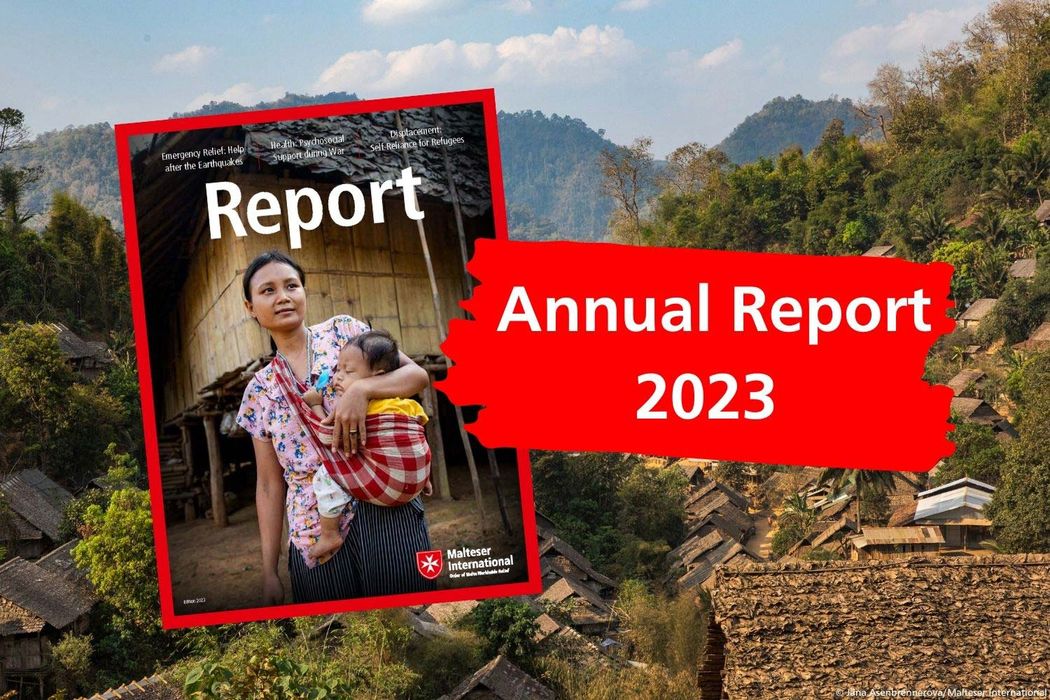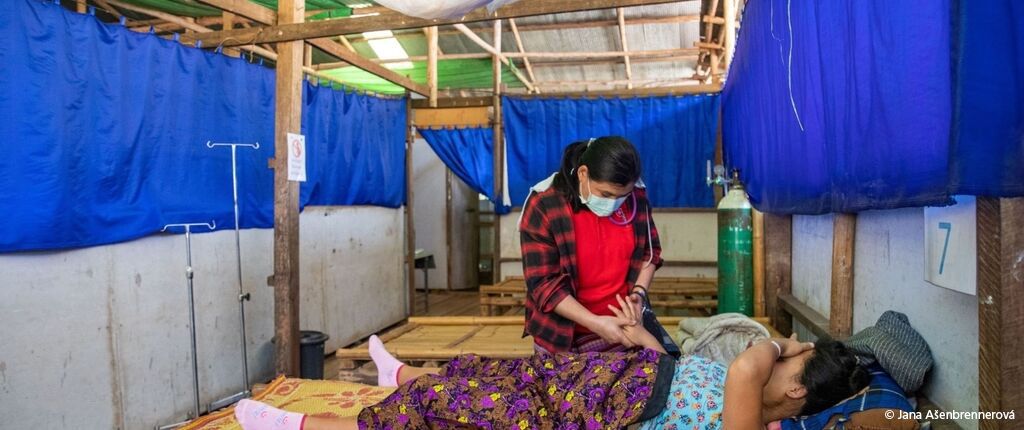
“I always understood the importance of the path I chose”: Lah Ku Paw, Midwife-in-Charge in a Refugee Camp
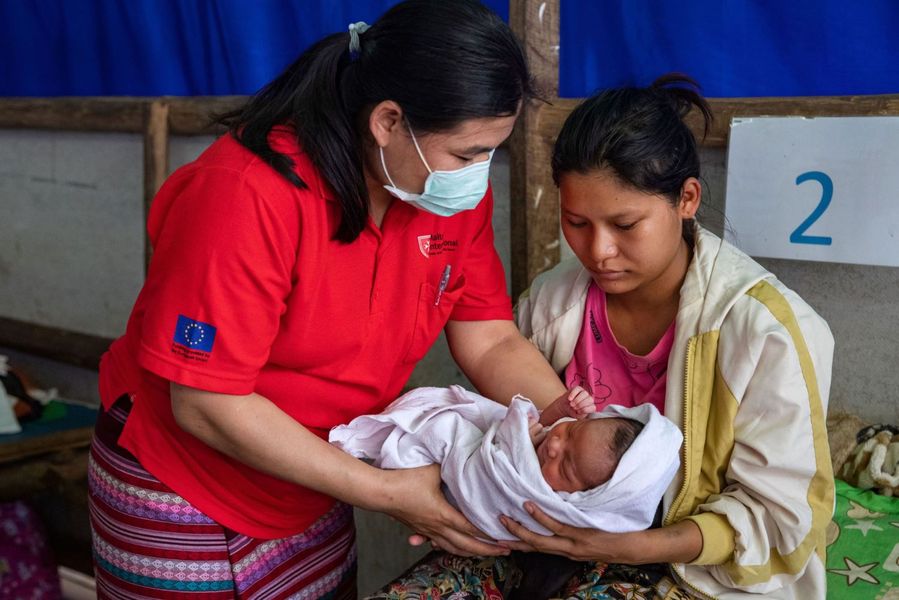
Photo: Jana Ašenbrennerová
Carefully, Lah Ku Paw unwraps the tiny newborn from the soft cloth in which he was wrapped, sleeping peacefully beside his mother in the health facility of the refugee camp Mae Ra Ma Luang. But the calm exuded by the experienced midwife with the infectious laugh is short-lived: The stethoscope is cold and the little boy immediately proofs his good lung capacity with indignant crying. Luckily, it is only a quick examination. All is well, and back in mommy’s arms, the infant soon stops wailing. Mother and baby obviously feel safe and well cared for. Lah Ku Paw is satisfied.
Initially, from 2011 to 2014, Lah Ku Paw visited households in the camp as a trained “Community Health Worker” and spoke with them about health issues such as vaccinations, medical check-ups and sanitary facilities. Later, she again accepted the training offers made by MI and became a midwife. Since 2018, she has worked as Midwife-in-Charge at the health facility supported by Malteser International (MI) at the camp.
Project for enhanced self-reliance
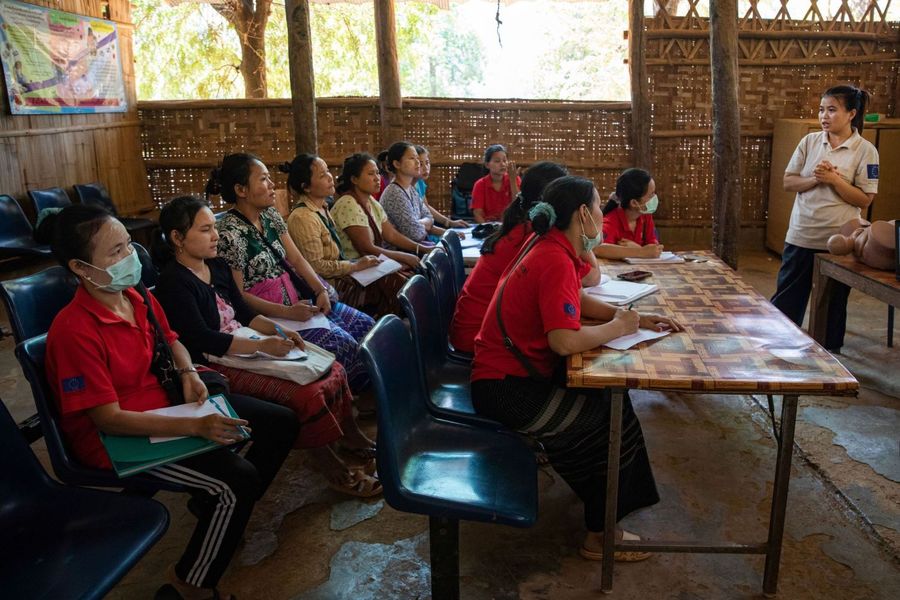
Photo: Jana Ašenbrennerová
Her commitment as a “Community Volunteer” is made possible by a project that focuses on continuous basic and advanced training for volunteer refugees. For over 30 years now, MI has been active in the areas of health and WASH (water, sanitation, hygiene) in both camps. From the beginning, MI has been putting a strong emphasis on involving the residents in the planning, implementation, and monitoring of support efforts in the areas of health and WASH, while limiting MI’s own role to training, supervision, and mentoring.
In this way, MI ensures that residents are informed about and participate in programs, can give feedback, and are involved in decision-making. One of the objectives is to strengthen the sense of autonomy among all camp residents.
Support for family and community
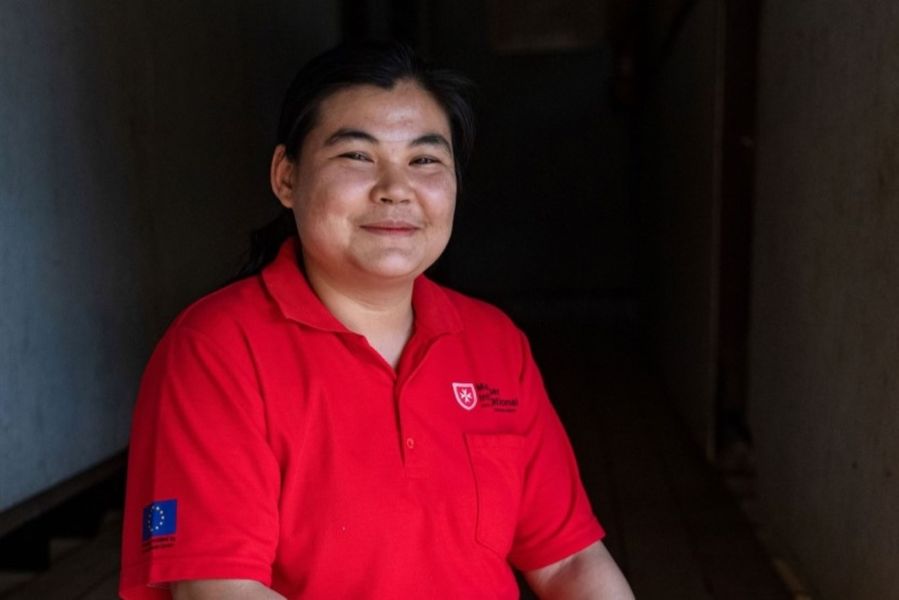
Photo: Jana Ašenbrennerová
Lah Ku Paw has given birth to two sons in the same health facility where she works today. Her eldest, 16 years old, was born here in 2008, the year she arrived at camp. Back then she had to flee her home village in Myanmar together with relatives, leaving behind her closest family. Her mother and sister only recently arrived at the camp. Her father still remains in their village, monitoring the situation and hoping that one day he can tell his family that it is safe to return. Until then, Lah Ku Paw, who receives a financial incentive for her work as Community Volunteer, is the sole supporter of her entire family at camp. Her husband, who has mental health issues, can only contribute to the household in a very limited way.
“My job is very important for my community and my family. I take care of mothers and their children, which I believe to be very important, as is child delivery and the care of pregnant women. I always understood the importance of the path I chose. I like my job,“ she says. The hardest moments come when unexpected complications arise during labor or when she must give bad news to families. Despite the often challenging living conditions of the refugees, this fortunately happens quite rarely.
Wishes for the future
Lah Ku Paw appreciates the security at Mae Ra Ma Luang and enjoys her work. But as soon as the situation in her home country allows it, she would like to return with her family, because she worries about the future of her children, their education and perspectives in live. Lah Ku Paw is also very keen to help the people in her home community and is convinced that the midwifery skills she learned at camp can be of valuable service to them.
Our work in Thailand
Since 1993, Malteser International has been implementing a wide-ranging primary health care project for currently about 18,000 refugees in the two refugee camps Mae Ra Ma Luang and Mae La Oon on the Thai-Myanmar border. Our project includes both comprehensive curative and preventative measures to improve the health status of the refugees, as well as the provision of water, sanitation, and hygiene. In addition to medical treatment in our hospital wards, we take care of, among other things, the referral of severe cases to Thai hospitals, prevention and control of communicable disease outbreaks, we accompany mothers and their babies during and after pregnancy and delivery, provide therapeutic and complementary foods for malnourished children, and offer psychosocial support. This is possible thanks to the financial support through the European Union, other donors and private donations.
Our Annual Report 2023
You can find more information about our work in Thailand and worldwide in our Annual Report 2023.
